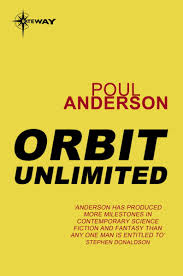We learn the distinction between truth, lies and fiction. Is there a fourth category: the yarn? A yarn, in this sense, would be a tall tale recounted as if it were a personal experience. A guy told me about something that (he said) he saw happen in India. When I recounted this tale to a third party, that party replied, "Jim tells a good story!" or "You didn't believe him, did you?" My response at that stage was not annoyance at Jim for lying to me but annoyance at myself for being taken in. Should I have understood from the beginning that Jim's narrative was almost like a joke, intended to be enjoyed but not believed? Maybe I could have played along by pretending to believe it but it need only have been pretense? A yarn is not intended to deceive, certainly not about anything important, as when I claim to have payed a bill that I haven't.
I am not sure about the moral status of yarns but fiction writers should be able to tell them well.
That initial distinction between lies and fiction was hard to learn. I was told that lies were always wrong but suddenly a "diplomatic lie" told to protect a member of the Royal Family was permissible. A teacher disturbed me by telling me that a comic strip that I liked was (not fiction but) "lies!" Again, stealing was always wrong but Robin Hood (apparently) was right to steal from the rich to give to the poor.
Children need protection from confusion by adults but, then again, we have to learn to think for ourselves.

1 comment:
Kaor, Paul!
I tend to think of "yarns" as mostly fictions, stories not meant to be taken as literally true. Or exaggerations with some bits of truth mixed in.
Ad astra! Sean
Post a Comment